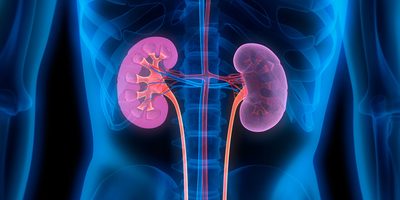
Kidney disease complexities drive enduring commitment to find solutions
The complexities of chronic kidney disease, which affects a billion people, has occupied researchers at The George Institute for a decade. Our work holds not only the hope of better treatment, but also new ways of working together to achieve breakthroughs and drive big, lasting change.
Chronic kidney disease shortens life, reduces quality of life and is expensive to treat. Finding a solution, and innovative ways to treat or prevent this chronic condition and its complications, has been a focus for The George Institute for more than a decade. Our studies have proven that prevention is key, but relatively few treatments have been shown to be effective.
The George Institute's most recent research in this area has included IgA Nephropathy, which affects mostly young adults and occurs when abnormal activity of the immune system causes kidney damage. It is one of the most common causes of kidney failure, but has no specific proven treatment.
Following a small pilot study of treatments in Beijing, by Peking University First Hospital, researchers within the Institute with colleagues at Peking University and several international kidney specialist organisations, have worked together to conduct a systematic review examining the effects of steroid treatment for IgA Nephropathy. The review demonstrated that steroid therapy appeared to prevent kidney failure, but with a potential 55% higher risk of adverse events in patients.
A global study of high-risk kidney patients
According to researchers more extensive investigations were needed to obtain high quality and reliable data. For this reason, the authors from China, Australia, India, the UK, the USA and Canada commenced planning a global study of high-risk kidney patients, called the Therapeutic Evaluation of STeroids in IgA Nephropathy Global Study (TESTING study).
The global study will include 1,300 people from around the world and will follow them for five years, and assess whether steroids safely prevent kidney failure.
The TESTING study randomised its first patient in 2012 and will provide data that will guide the treatment of IgA Nephropathy patients globally when completed. The study will engage with patients via hospitals around the world and will adopt a new collaborative clinical trial model led by international renal experts and leaders in clinical trial conduct.
TESTING's model and approach have been acknowledged globally and is already attracting the attention of the International Society of Nephrology. For patients with kidney disease, TESTING holds hope of better treatments and improved care but patients with established chronic kidney disease are also at risk of cardiovascular disease. People with severe kidney disease are at risk of having a heart attack that is many times higher than people without kidney disease.
Shaping global policy and practice
As part of the war on disease, researchers at the Institute are looking at ways to better manage and reduce this risk. In searching for a breakthrough, The George Institute also initiated the world's largest trial which included more than 9,400 people with kidney disease, the Study of Heart and Renal Protection (SHARP).
SHARP showed that the combination of two cholesterol lowering drugs prevented almost one in five heart attacks, strokes and operations to open blocked arteries in people with chronic kidney disease.
The results were the first to show definitive evidence of the benefits of cholesterol lowering in combating the exceptionally high rates of cardiovascular diseases suffered by people with chronic kidney disease.
SHARP is the first study that clearly demonstrated that an intervention reduced the risk of cardiovascular disease among patients with chronic kidney disease. It reduced the risk of heart attack, and these findings are set to translate into global policy and practice in the coming year.
The wider impact of chronic kidney disease
Acknowledging the opportunity to harness these findings and continue to follow this large group of patients, The George Institute launched SHARP-ER in 2012. This work will extend follow-up for another five years, allowing researchers to see if the heart protection benefits persist or perhaps even increase among patients with kidney disease. They will also focus on safety issues and the impact of chronic kidney disease on patients and their families, such as the financial, employment and social implications of the condition.





